Coming soon to the USA! While our services may not be available yet, sign up now to stay in the loop as we bring our innovative crypto solutions to America.
CoinJar Blog
Read the latest Bitcoin and Cryptocurrency news and opinions from the easiest place to buy, sell, and use crypto.

Bitcoin Soars to New All-Time High of $115,000: But Why?
July 10, 2025Bitcoin again has powered through another psychological barrier: This time, the US$115k mark. What are the events that have helped this happen?Read more
Onchain: A Midsummer Night's Crypto Happenings
July 2, 2025If Shakespeare was alive today, he'd be the perfect person to write a comedy about crypto. Story One One digital identity isn't enough Perhaps the question we should ask isn't "Who am I?" but "How many?" In Japan, there's a...Read moreOn/Offchain
Your weekly dose of crypto news & opinion.
Join more than 150,000 subscribers to CoinJar's crypto newsletter.
Your information is handled in accordance with CoinJar’s Privacy Policy.
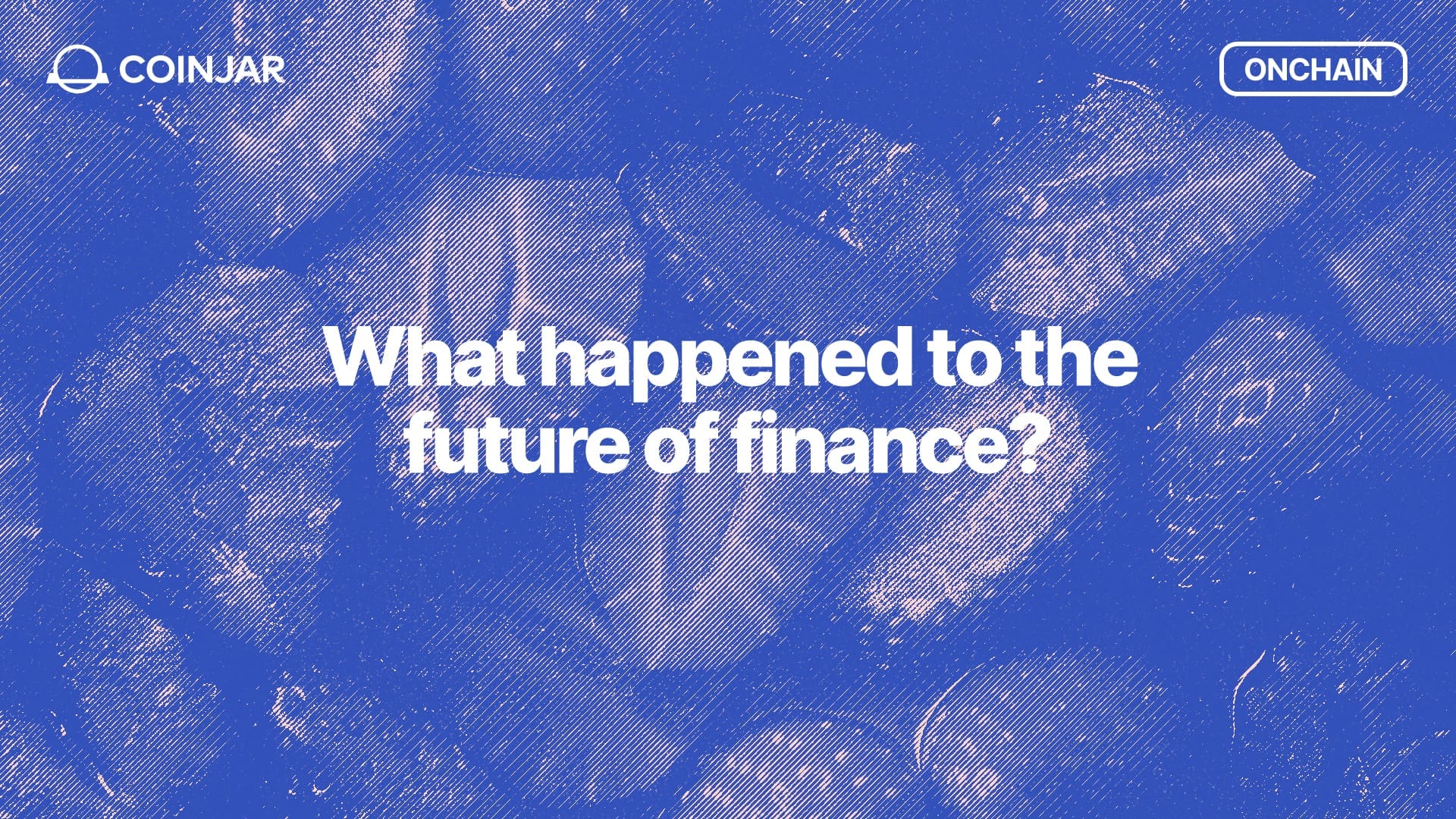
Onchain: What happened to the future of Finance?
June 18, 2025I ask myself as I follow the crypto news. It seems we’re not really chasing the idea of providing an alternative to current systems, but...Read more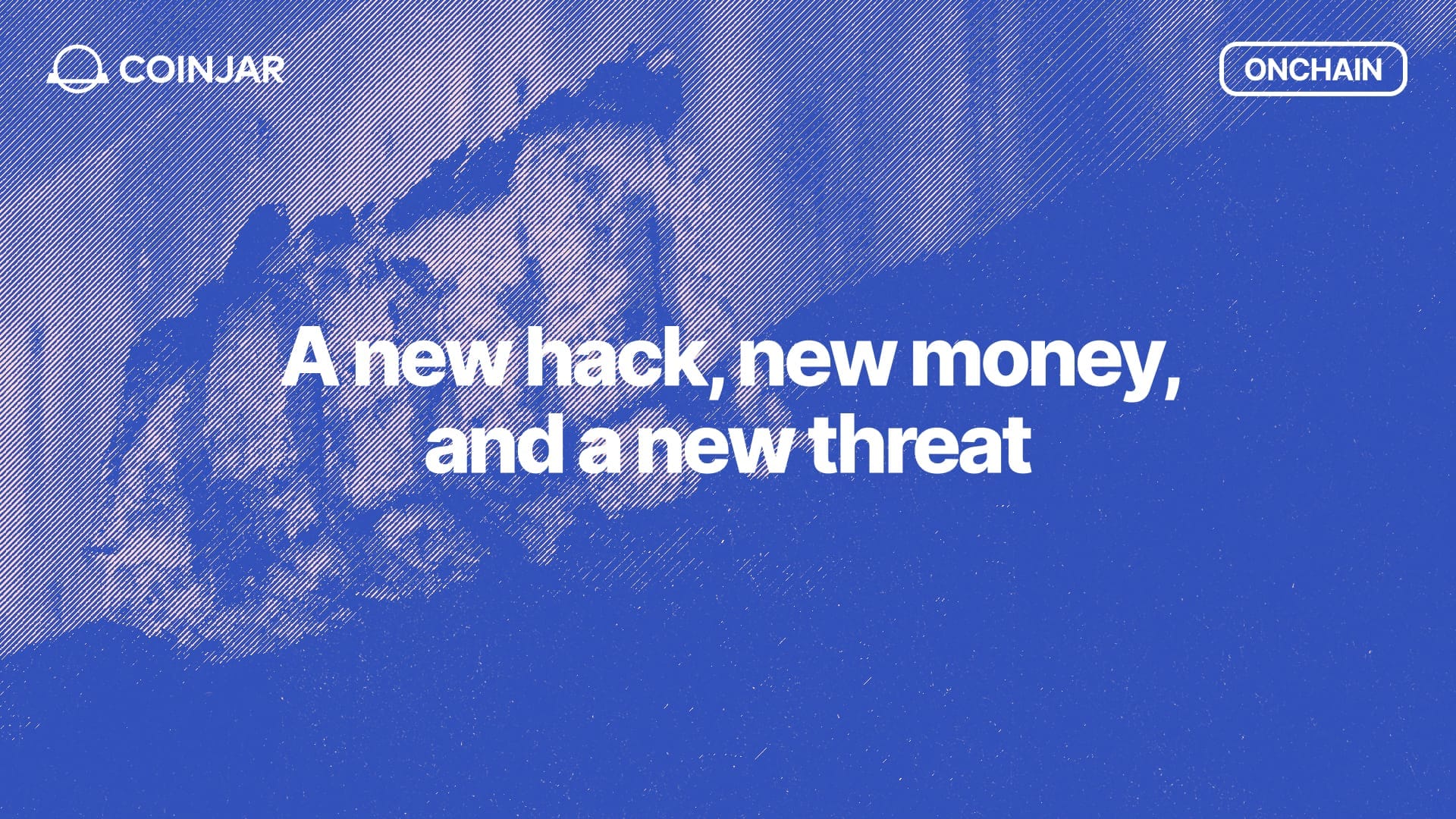
Onchain: A new hack, new money, and a new threat
June 5, 2025Story One A hack with a twist On May 22nd, the leading DEX on the SUI blockchain tweeted that it had detected an incident leading to...Read more
Bitcoin Hits $110,000 for the First Time in History
May 22, 2025Bitcoin just hit US$110,000. While it hasn't remained there, it is certainly hovering close. It is a huge breakthrough for every crypto...Read moreCommunity

Spot the Crypto Scam: Top 4 Survey Fails
September 4, 2024Here, we reveal the top four questions on the quiz that tripped up even the most scam-savvy of participants.Read more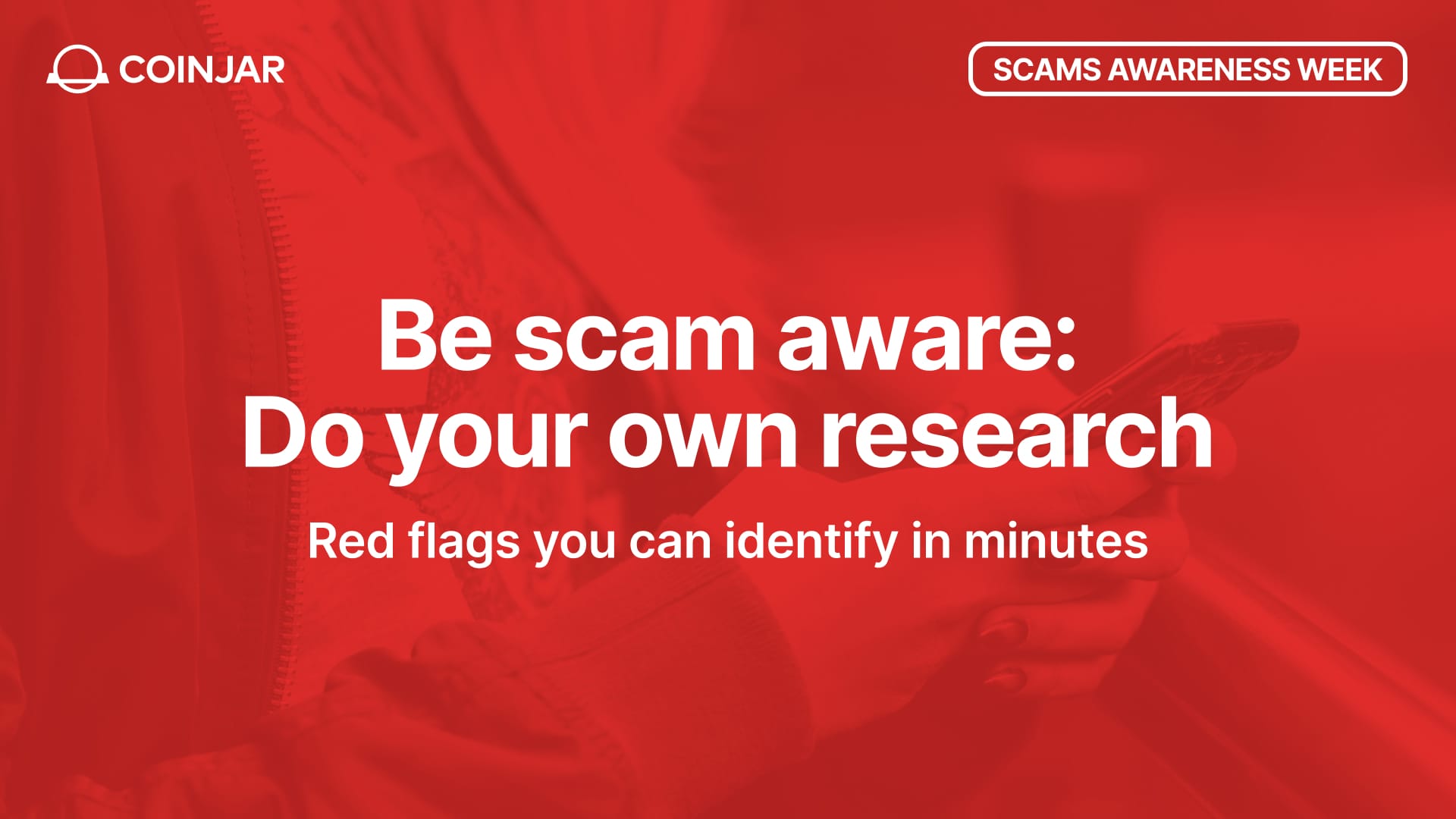
Be Scam Aware: Do Your Own Research
August 27, 2024A solid piece of advice is that you should always be doing your own research (DYOR) before becoming involved with any financial...Read more
Ten top CoinJar blog reads in 2023
December 28, 2023As we bid farewell to another year in crypto, here are ten headlines from your most read posts on the CoinJar blog. Not limited to...Read more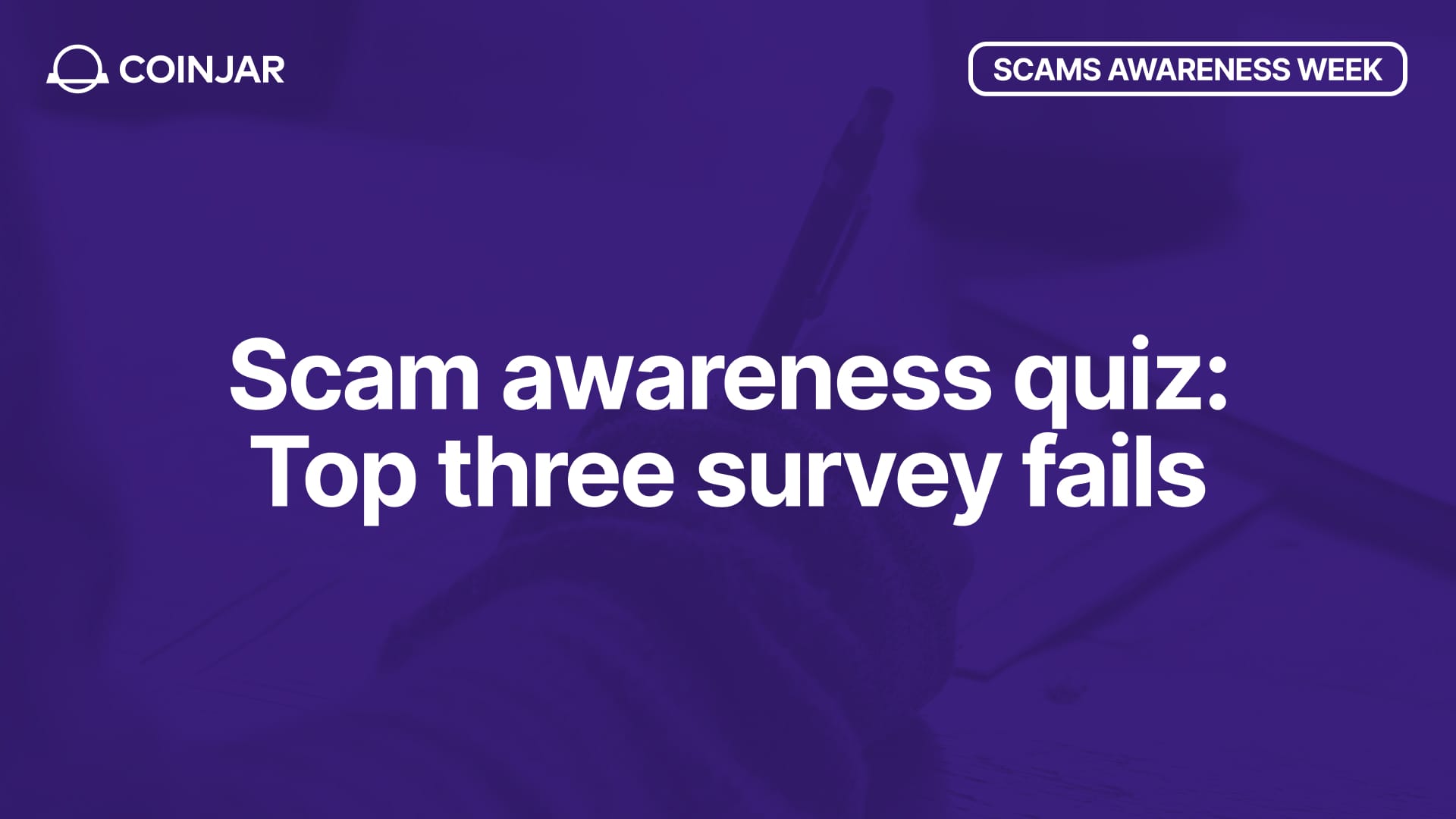
Top 3 Answers that CoinJar Customers Got Wrong in the Scam Awareness Quiz
December 11, 2023For the end of Scams Awareness Week, we're reviewing the quiz results and the top 3 questions on the quiz that tripped up even the most...Read more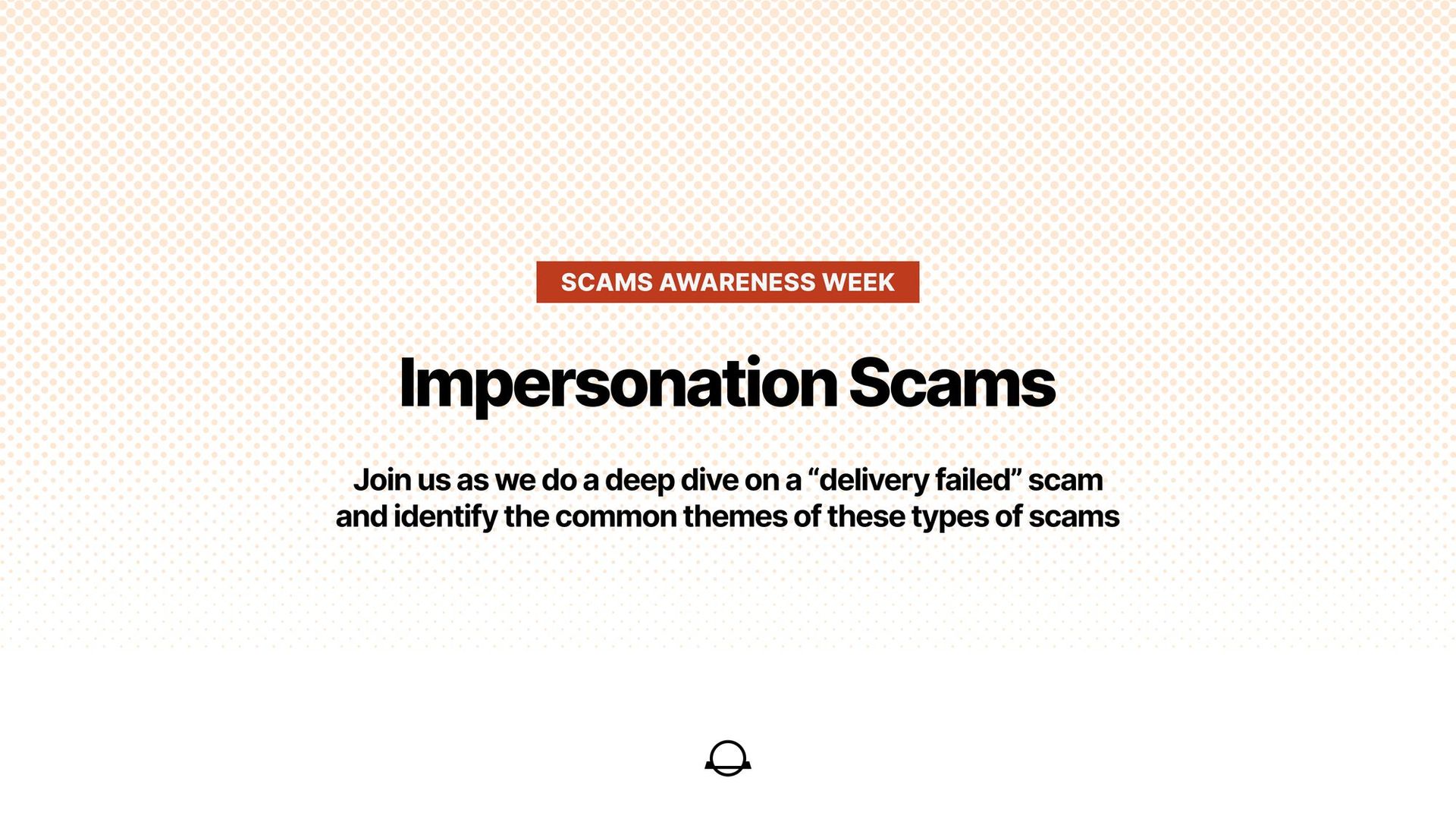
Impersonation Scam – “Delivery Failed” Deep Dive
December 1, 2023It's Scam Awareness Week, and CoinJar is an official partner. Today, we've jumped off the deep end straight into a live impersonation...Read more
Spot the Scam Quiz for a chance to win an iPad
November 29, 2023The theme for Scams Awareness Week 2023 is impersonation scams and to mark the occasion we’re giving Australian customers the chance to...Read moreCompany & Product

CoinJar’s Trophy Cabinet Is Stacked: Finder’s Award, Finnies and CoinDesk Glory!
May 21, 2025Our winning streak is hotter than a bull market, and we are stoked to share the latest shiny additions to our trophy cabinet. CoinJar has...Read more
Introducing TradingView Charts on CoinJar – Elevate Your Trading Experience!
April 15, 2025Thanks to popular demand, we’ve integrated TradingView Charts, the world’s most popular charting tool (as ranked by the Apple App Store),...Read more
$TRUMP: Make Memecoins Great Again!
January 20, 2025Looking to buy Trump's official memecoin? Well funny that, because CoinJar now lists this MAGA-minted token.Read more
Ireland, We Are Live!
December 17, 2024Dia duit Éire! CoinJar is now live in the Irish Republic. Read more
Bitcoin Smashes Through US$100K Barrier!
December 5, 2024Crypto bros and crypto sisters: Our time has come. Bitcoin just blasted through the US$100,000 mark!Read more
Level up your Crypto Game with Recurring Buy for ANY Coin!
November 28, 2024You can now Dollar-Cost Average (DCA) into any cryptocurrency on CoinJar. That's right, you're no longer limited to just Bundles. DCA is...Read moreCrypto News & Analysis
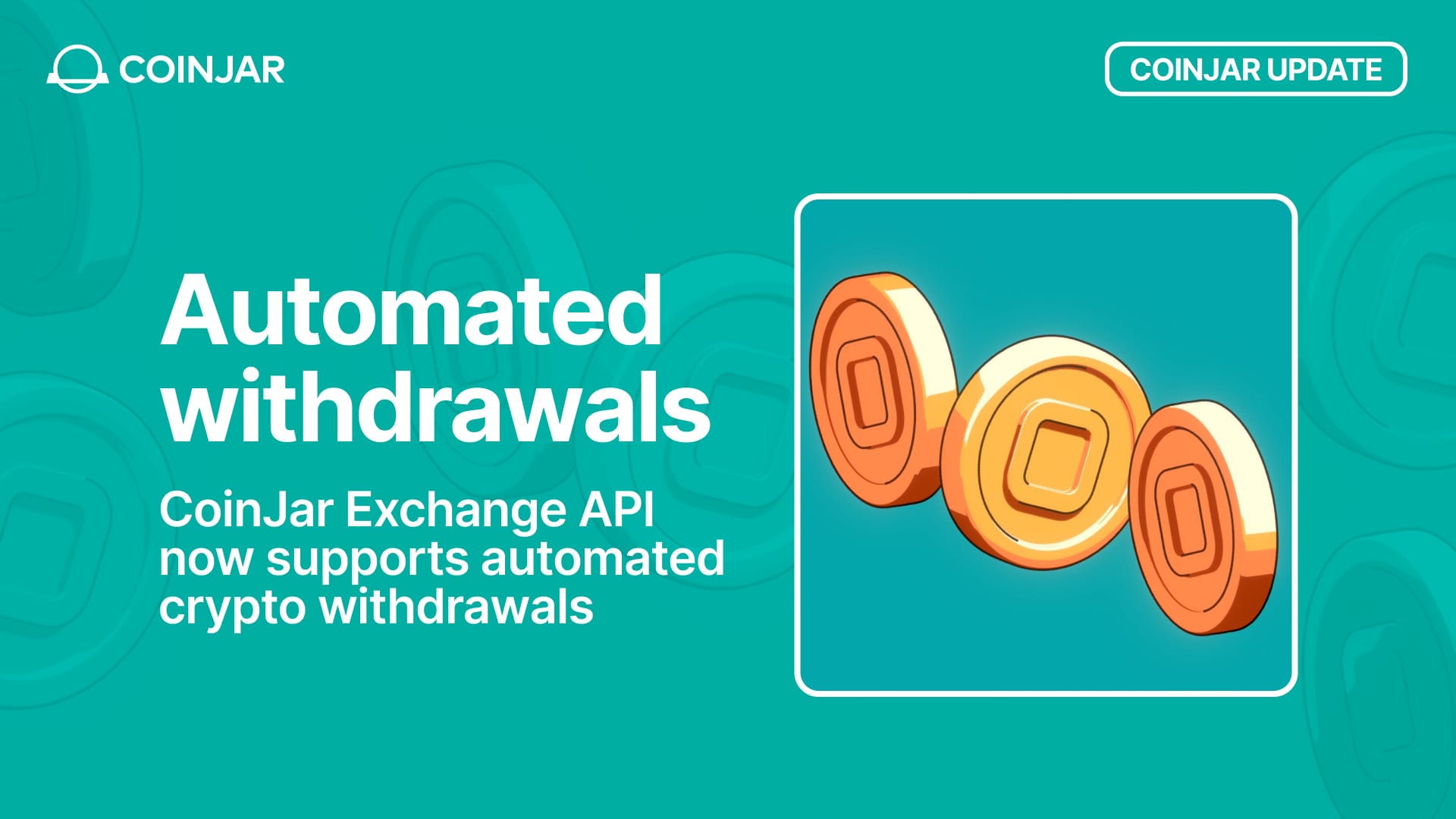
Automated Crypto Withdrawals Now Available with the CoinJar Exchange API
April 14, 2025We're thrilled to announce the launch of our new API, enabling automated crypto withdrawals for our CoinJar Exchange...Read more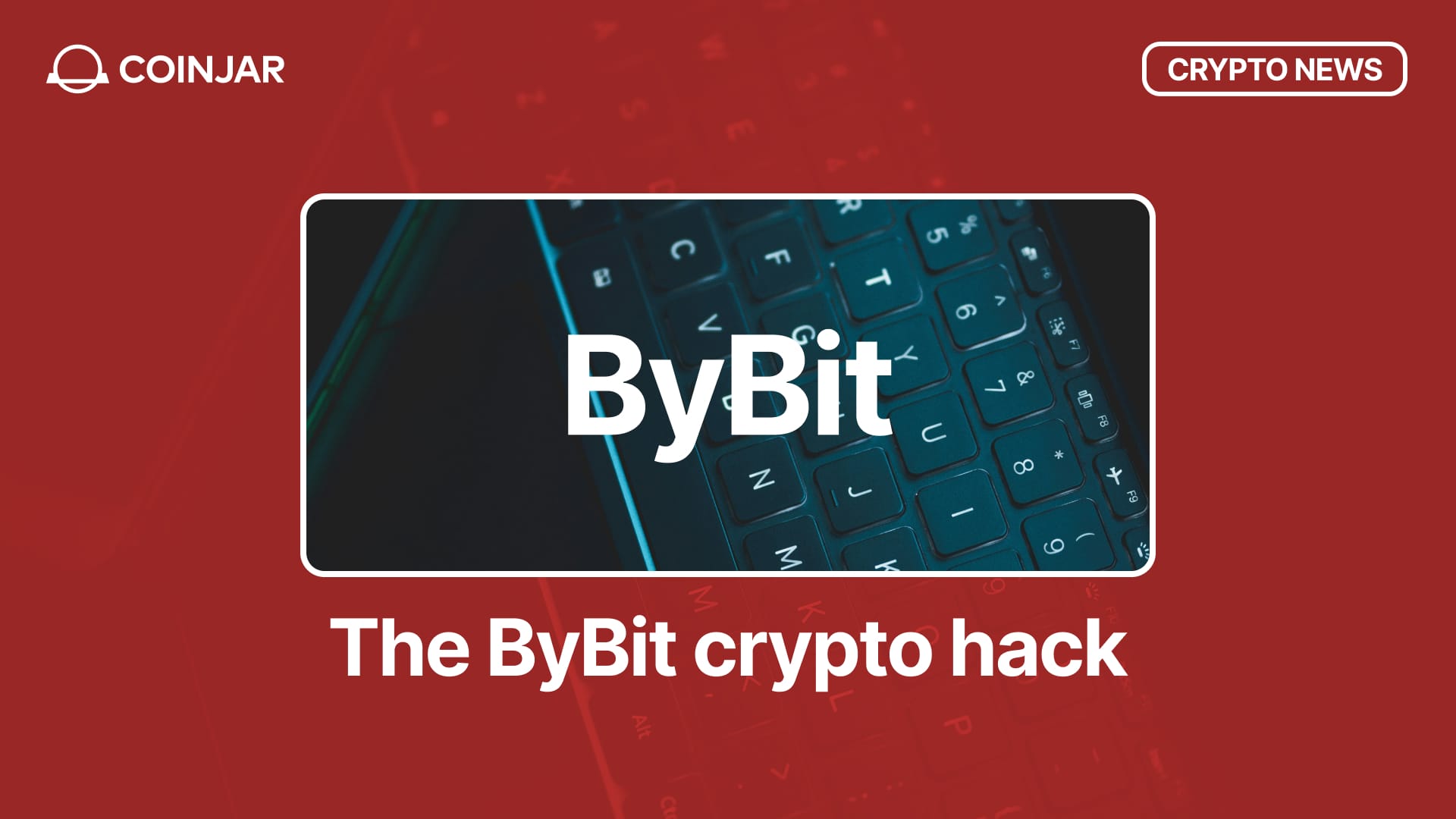
The ByBit Crypto Hack Is the Biggest in the World. How did it Happen?
February 28, 2025The ByBit hack was huge in terms of sheer monetary value. Here is a breakdown of how it unfurled. Read more
Top Crypto Events That Shooketh Us in 2024
January 2, 2025Crypto was a wild ride in 2024. Here are the top ten cryptocurrency whoppers from last year that gave us the shook.Read more
CoinJar's 2024 Year in Review and What is Ahead for 2025
December 22, 2024Here's everything we achieved in 2024, and what we plan to conquer in 2025!Read more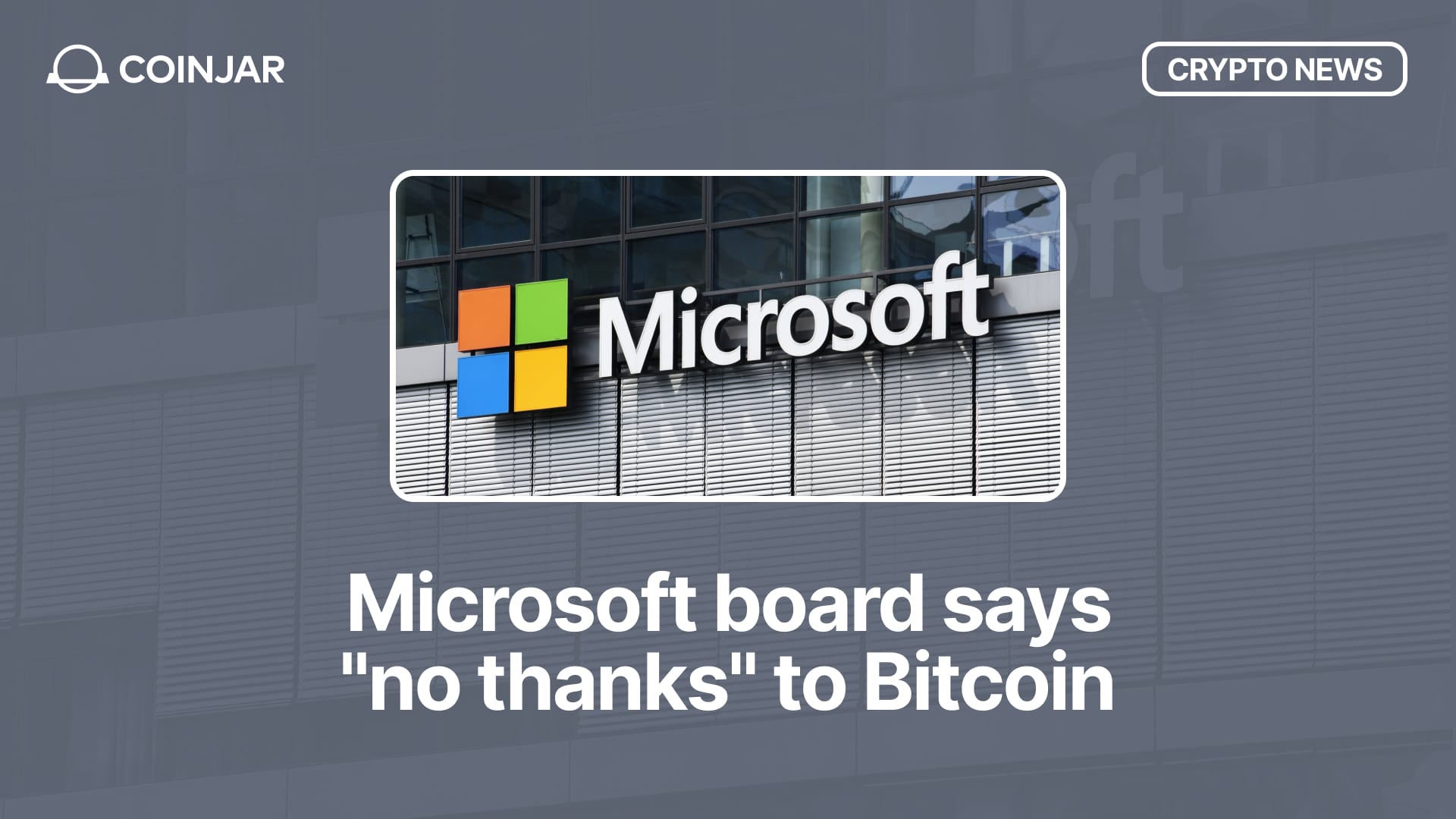
Microsoft Board Says "No Thanks" to Bitcoin. What Will Shareholders Vote?
October 30, 2024Will Microsoft shareholders vote to add Bitcoin to the corporation's treasury? Interesting times are coming.Read moreGuides & How-Tos
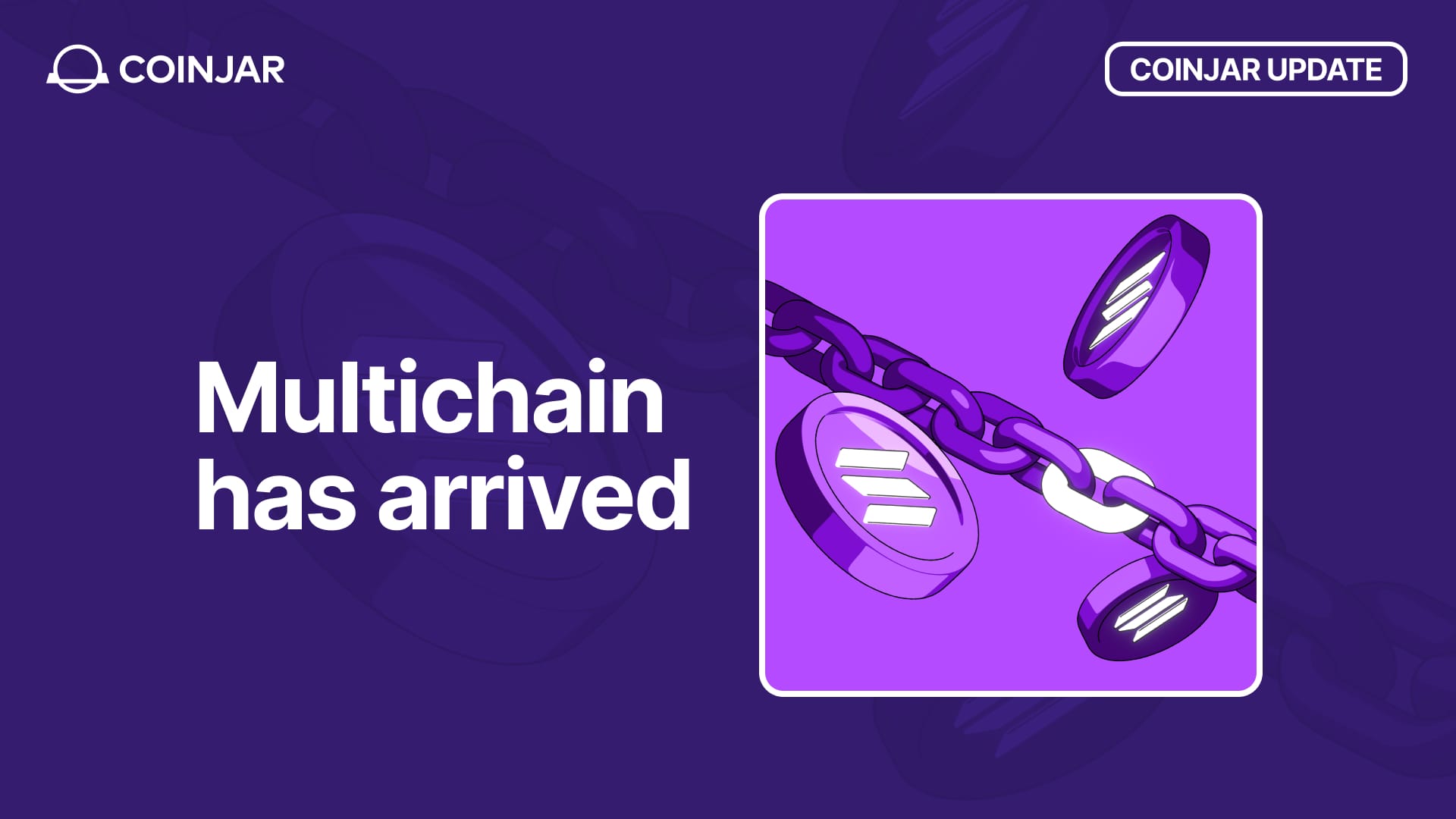
Multichain at CoinJar: Faster and Cheaper USDC Transfers on Solana
September 11, 2024Sometimes, it can be inefficient and costly to do USDC transfers on the Ethereum network. Lucky for you, CoinJar now offers USDC...Read more
Be Scam Aware: Do Your Own Research
August 27, 2024A solid piece of advice is that you should always be doing your own research (DYOR) before becoming involved with any financial...Read more
Top 3 Answers that CoinJar Customers Got Wrong in the Scam Awareness Quiz
December 11, 2023For the end of Scams Awareness Week, we're reviewing the quiz results and the top 3 questions on the quiz that tripped up even the most...Read more
Impersonation Scam – “Delivery Failed” Deep Dive
December 1, 2023It's Scam Awareness Week, and CoinJar is an official partner. Today, we've jumped off the deep end straight into a live impersonation...Read more
Spot the Scam Quiz for a chance to win an iPad
November 29, 2023The theme for Scams Awareness Week 2023 is impersonation scams and to mark the occasion we’re giving Australian customers the chance to...Read more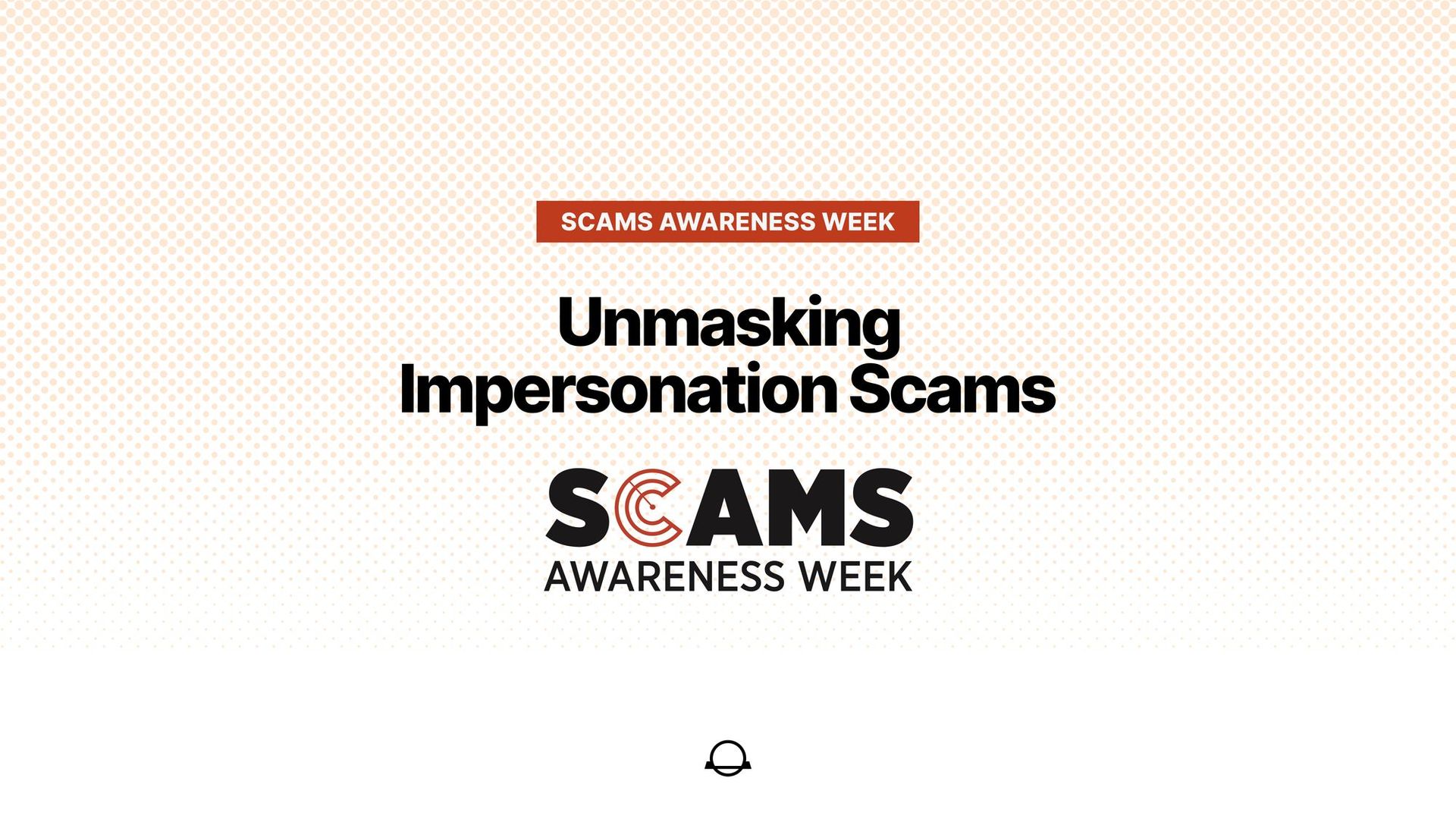
Unmasking Impersonation Scams
November 27, 2023As part of Scam Awareness Week, we're joining Scamwatch and the ACCC as an official partner to delve into the shadowy realm of...Read moreOpinion

Onchain: Coming back to life
May 21, 2025Returning to life has been a theme for crypto recently in many ways. Story One New exit strategy just dropped Imagine you're the...Read more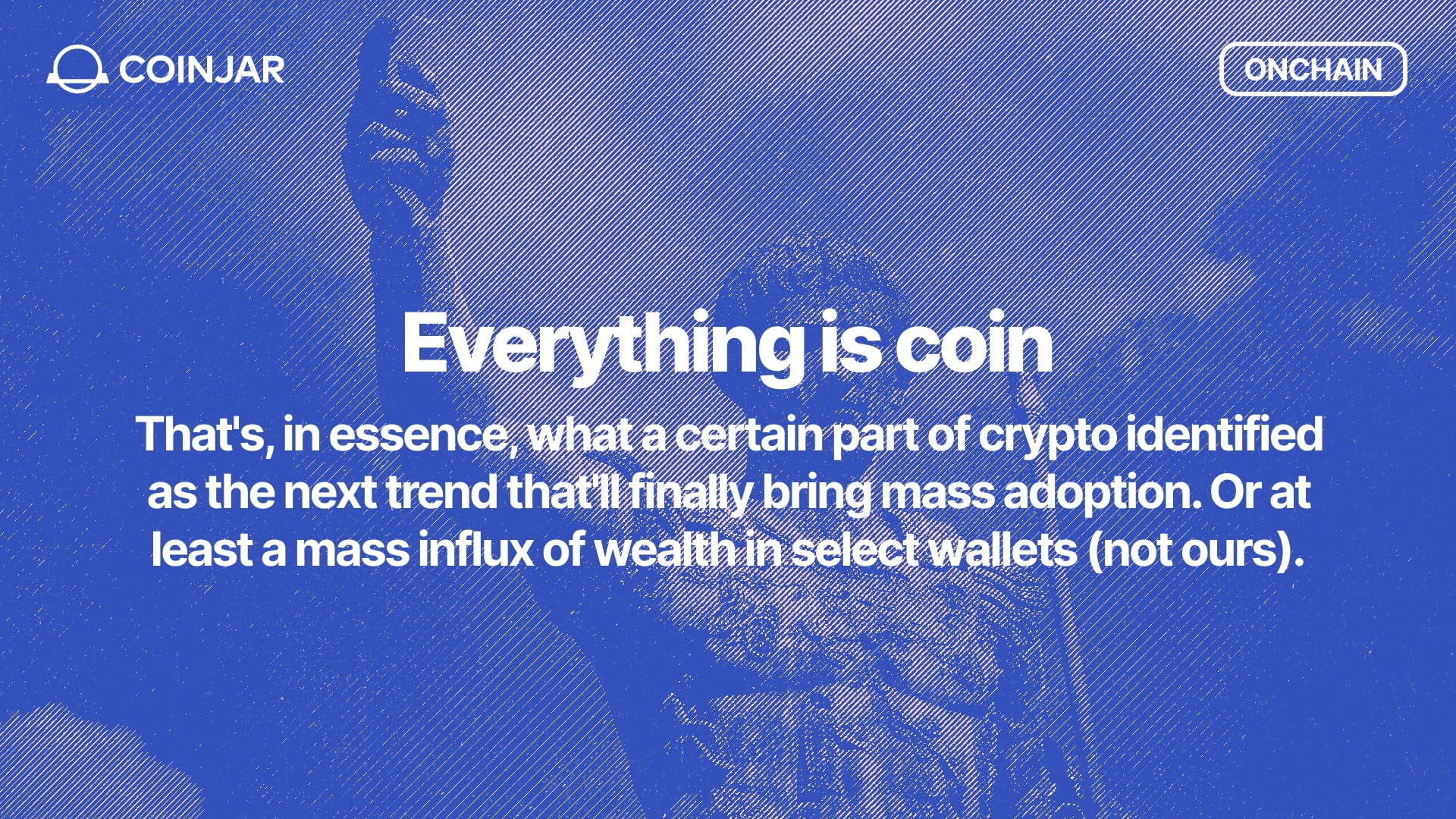
Onchain: Everything is coin
April 24, 2025That's, in essence, what a certain part of crypto identified as the next trend that'll finally bring mass adoption. Or at least a mass...Read more
Onchain: Red sea
April 9, 2025Finally we have something to bond over with normal people: we're all in the same boat sailing the red seas that are our...Read more
Onchain: Rise and Shine
March 27, 2025It's official now. Sparkling water isn't just part of assimilating to German culture anymore but has become an integral part of the alpha...Read more
Onchain: Is Nature healing?
March 12, 2025Prices are down, X was down (and for a little moment I had hope of being free), and people in crypto are realizing that they might have...Read more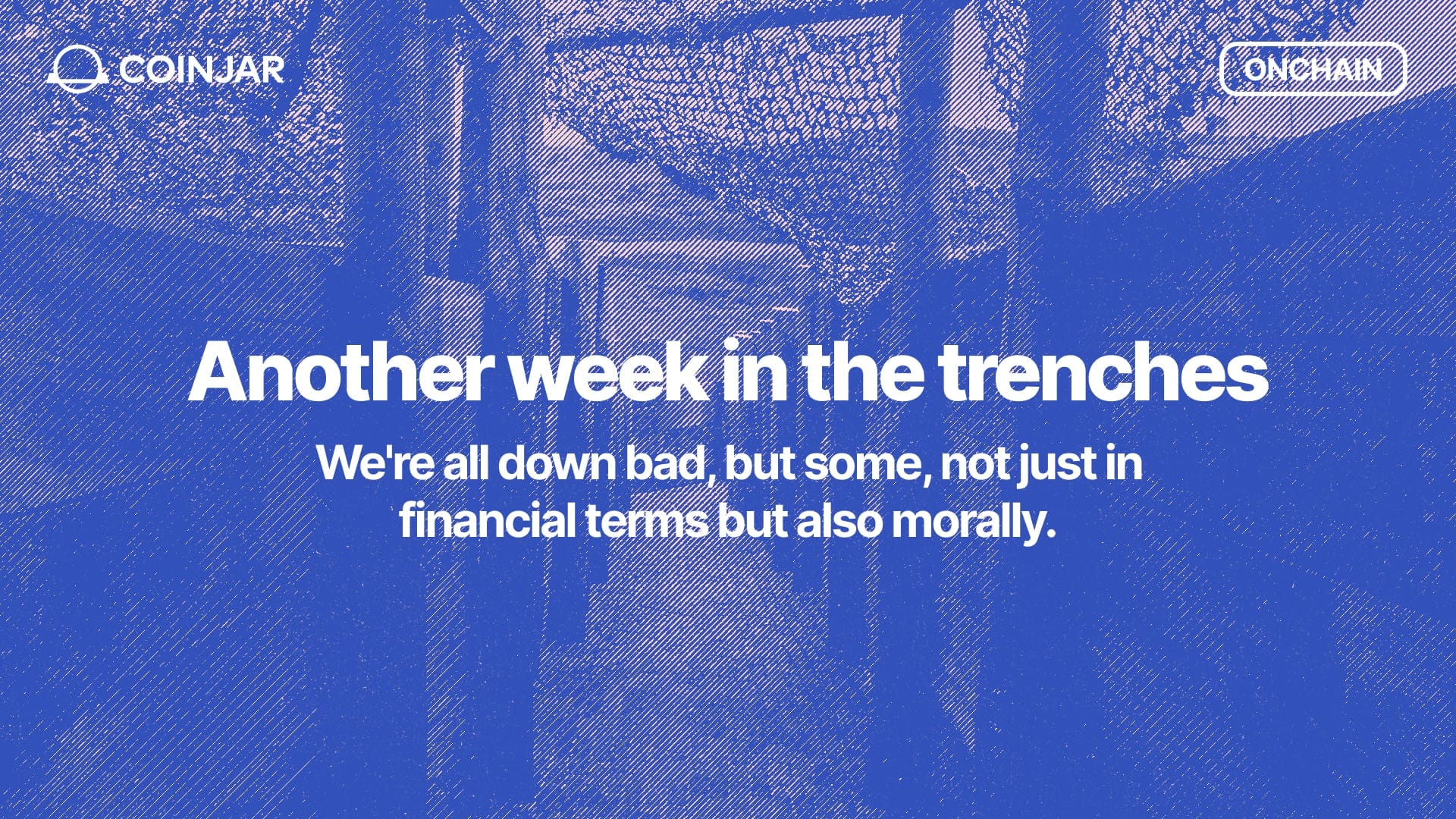
Onchain: Another week in the trenches
February 27, 2025We're all down bad, but some, not just in financial terms but also morally. Story One Another presidential meme disaster You'll be...Read moreCoinJar
Company
Support
Legal
Crypto on CoinJar
Copyright © 2025 CoinJar, Inc. All rights reserved.
CoinJar, Inc. is a registered Money Services Business with FinCEN and licensed as a money transmitter, NMLS #2492913. For a list of states in which CoinJar, Inc. is licensed or authorized to operate, please visit . In certain other states, money transmission services are provided by Cross River Bank, Member FDIC.
This site is protected by reCAPTCHA and the and apply.
CoinJarGet the app.